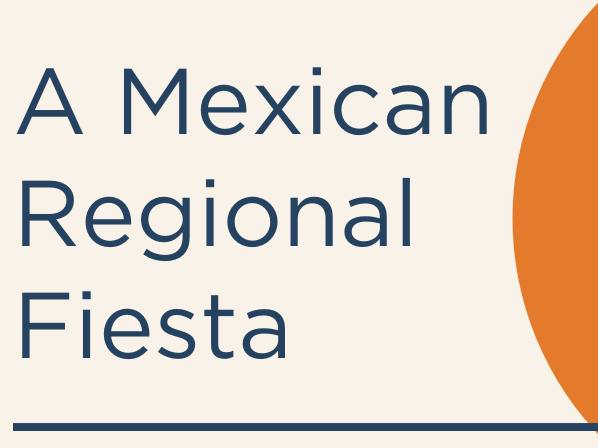Section Branding
Header Content
Makes Your Heart Sing: What Mexican Regional Means To You
Primary Content
Cinco de Mayo has a history that few outside of the Mexican-American community know – and there are conflicting opinions about whether or not to even celebrate the day. As we consider the passionate conversations about the holiday's historical significance, we also will take any opportunity to, once again, celebrate the cultural ties between our two countries. We couldn't think of a better way to do that than with a weeklong Mexican Regional Fiesta!
So let's highlight the events of the week:
We published a podcast episode on Wednesday that took a deep dive into the genre and discovered it is anything but (just) your abuela's music; today, we're interviewing Mexican Regional global superstar Joss Favela to chat about his new album, and then, maybe best of all, the very thing you're reading now.
Last week, we asked listeners and readers to tell us what "Mexican Regional" means to them, and to submit a few of their favorite artists as well. We've pulled together our favorite contributions, and compiled the top artists in a playlist which you can listen to below.
Get to know each other, hear each other's voices and join us in celebrating a week of Mexican Regional as an Alt.Latino community. Without further ado, let's dive into the music that, as Yatzel Roldán from Puebla, Mexico put it, es "La riqueza musical de un país diverso."
What Mexican Regional means to you...
"It means familiarity and a sense of belonging... every Mexican has heard these songs at least once, and have felt the deep nostalgia within the melody. A reminder of el suelo Mexicano." – Andrea Tamayo, Mexico
"Mexican Regional music means honoring my beautiful culture, remembering my childhood memories in Mexico City. I loved our family gatherings, dancing with Tío Willy while eating delicious food and sharing stories of la familia. Vivo en Texas pero mi corazón le pertenece a Mexico." – Montserrat Garibay, Mexico City
"Es la música que escuchaban mis padres cuando yo era niña. Los mariachis y el ballet folklórico mexicano. Los corridos de caballos, de la revolución, el desamor, el borracho que llora sus penas y el machismo tan endémico puesto encima de la mesa sin maquillaje." – Luisa Echeverria, Spain/Mexico
"It's part of everyday life! Growing up, my dad used to blare banda music when he was working on his car ... [or] play Los Bukis, Rigo Tovar when he was just hanging around the house. And when he was in the mood to just listen to music for the simple joy of it, then he would be listening to Pedro Infante, or baladas by other artists – probably Javier Solis. For me today, music is a friend that cheers me up when I'm feeling down, motivates me when I need that extra push. It lulls me to sleep when my mind won't shut up. It's a reminder of an essential part of life." – Veronica Zaragoza, U.S./Mexico
" La música regional significa recordar de donde nacimos y los recuerdos que tenemos de estar en el lugar que nos vió nacer." - La Paz, Baja California Sur, México
"Mexican Regional means partying, working, togetherness, nostalgia, heartbreak, a history lesson, and it means home. Corridos were written in the time of my great grandfather fighting in the Revolutionary War to mark an event or someone's greatness. Mariachi is a beautiful form of regional that just brings out my Mexican pride, nostalgia, and can even move me to tears. It's just like a smell that takes you back to a memory, Mexican Regional takes me back home." - Esmeralda Irigoyen, Durango, Mexico
"It means that even though I am far away from home, some of the music that I grew up with as the ability to take me back for at least a mere second. Music is something so powerful it can transport you places, bring back good or bad memories, make you cry and at the same time make you happy, sometimes just listening can put flavors, smells and family in your thoughts." - Angel R. Martinez, Ciudad Juárez, Mexico
Copyright 2021 NPR. To see more, visit https://www.npr.org.

